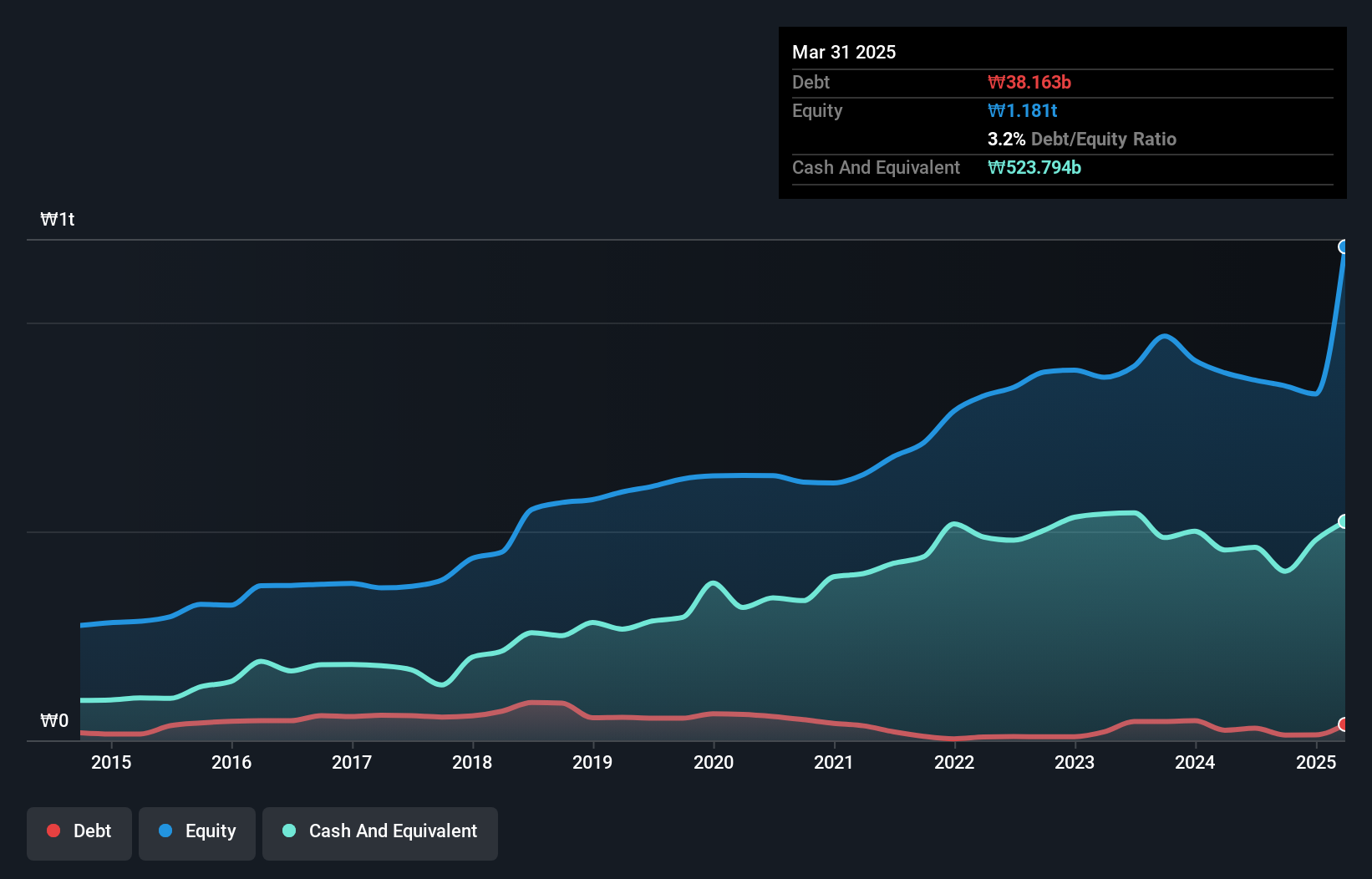Is SM Entertainment (KOSDAQ:041510) Using Too Much Debt?
Warren Buffett famously said, 'Volatility is far from synonymous with risk.' When we think about how risky a company is, we always like to look at its use of debt, since debt overload can lead to ruin. As with many other companies SM Entertainment Co., Ltd. (KOSDAQ:041510) makes use of debt. But is this debt a concern to shareholders?
When Is Debt Dangerous?
Generally speaking, debt only becomes a real problem when a company can't easily pay it off, either by raising capital or with its own cash flow. Ultimately, if the company can't fulfill its legal obligations to repay debt, shareholders could walk away with nothing. While that is not too common, we often do see indebted companies permanently diluting shareholders because lenders force them to raise capital at a distressed price. Of course, debt can be an important tool in businesses, particularly capital heavy businesses. When we examine debt levels, we first consider both cash and debt levels, together.
What Is SM Entertainment's Net Debt?
As you can see below, at the end of March 2025, SM Entertainment had ₩38.2b of debt, up from ₩24.1b a year ago. Click the image for more detail. But it also has ₩523.8b in cash to offset that, meaning it has ₩485.6b net cash.

A Look At SM Entertainment's Liabilities
Zooming in on the latest balance sheet data, we can see that SM Entertainment had liabilities of ₩499.5b due within 12 months and liabilities of ₩108.1b due beyond that. On the other hand, it had cash of ₩523.8b and ₩160.8b worth of receivables due within a year. So it can boast ₩77.0b more liquid assets than total liabilities.
This short term liquidity is a sign that SM Entertainment could probably pay off its debt with ease, as its balance sheet is far from stretched. Simply put, the fact that SM Entertainment has more cash than debt is arguably a good indication that it can manage its debt safely.
View our latest analysis for SM Entertainment
But the other side of the story is that SM Entertainment saw its EBIT decline by 7.9% over the last year. That sort of decline, if sustained, will obviously make debt harder to handle. There's no doubt that we learn most about debt from the balance sheet. But it is future earnings, more than anything, that will determine SM Entertainment's ability to maintain a healthy balance sheet going forward. So if you're focused on the future you can check out this free report showing analyst profit forecasts.
But our final consideration is also important, because a company cannot pay debt with paper profits; it needs cold hard cash. SM Entertainment may have net cash on the balance sheet, but it is still interesting to look at how well the business converts its earnings before interest and tax (EBIT) to free cash flow, because that will influence both its need for, and its capacity to manage debt. During the last three years, SM Entertainment produced sturdy free cash flow equating to 76% of its EBIT, about what we'd expect. This cold hard cash means it can reduce its debt when it wants to.
Summing Up
While it is always sensible to investigate a company's debt, in this case SM Entertainment has ₩485.6b in net cash and a decent-looking balance sheet. And it impressed us with free cash flow of ₩97b, being 76% of its EBIT. So we don't think SM Entertainment's use of debt is risky. When analysing debt levels, the balance sheet is the obvious place to start. But ultimately, every company can contain risks that exist outside of the balance sheet. To that end, you should be aware of the 2 warning signs we've spotted with SM Entertainment .
Of course, if you're the type of investor who prefers buying stocks without the burden of debt, then don't hesitate to discover our exclusive list of net cash growth stocks, today.
Have feedback on this article? Concerned about the content? Get in touch with us directly. Alternatively, email editorial-team (at) simplywallst.com.
This article by Simply Wall St is general in nature. We provide commentary based on historical data and analyst forecasts only using an unbiased methodology and our articles are not intended to be financial advice. It does not constitute a recommendation to buy or sell any stock, and does not take account of your objectives, or your financial situation. We aim to bring you long-term focused analysis driven by fundamental data. Note that our analysis may not factor in the latest price-sensitive company announcements or qualitative material. Simply Wall St has no position in any stocks mentioned.
 Wall Street Journal
Wall Street Journal